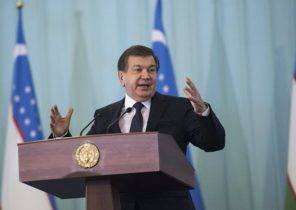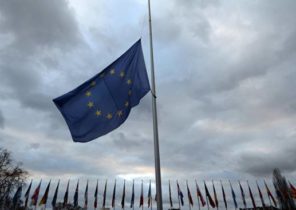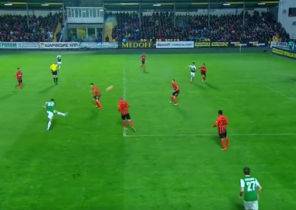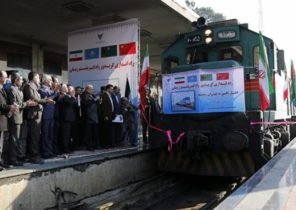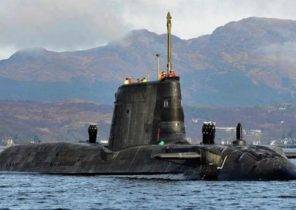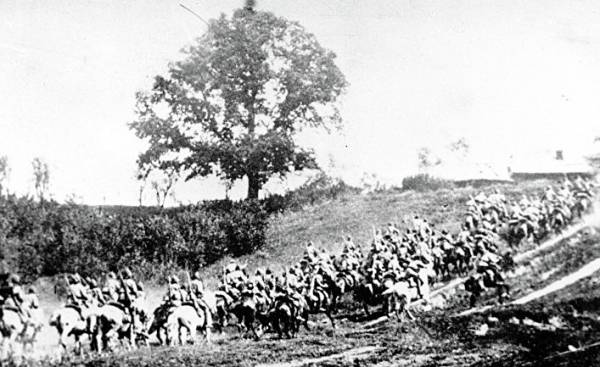
Gazeta Wyborcza: Why the war with the Bolsheviks was inevitable?
Novik Grzegorz (Grzegorz Nowik): Our States were doomed to conflict because of their desire for the opposite purpose. Poland was not the Eastern border: the Treaty of Versailles of 1919 was determined only in the West. In Russia, which was separated from Poland, Belarusian and Ukrainian Republic, and a continued bloody civil war. To the South was the government of General Anton Denikin, in Siberia — Alexander Kolchak to Petrograd attacked the white General Nikolai Yudenich, and the farthest extremity of Siberia was occupied by the Japanese and the Americans. The don appeared Cossack Republic, while Finland and the Baltic Republic broke away from the Russian. It’s hard to say that Russia is the real, because she didn’t have a single recognised abroad guide.
The Central Bolshevik Russia, which controlled both capitals, Moscow and Petrograd, stated that it is not a state because the proletariat has no one homeland. She wanted to bring the flames of revolution in the West. On the way to the implementation of this plan in life stood in November, 1918 Poland, which Stalin (the people’s Commissar for nationalities) was called a hindrance.
Pilsudski believed that on East from the Polish lands (the space between Russia and Germany, the Baltic and Black seas) along with the peoples of this area, we need to create a security zone that will become a guarantor and our and their independence. The articulation of this concept on paper no, but the idea was to create a Union of States opposing Russia. Historical Lithuanian lands it had to take one form, but in Ukrainian, which already had an independent state — another. The goal of Pilsudski was contrary to the intentions of the Bolsheviks. Stalin contemptuously called States that lie between Russia and Germany, the “border States”, and Belarusians and Ukrainians were even denied the right to be called independent Nations.
The main task of the Bolshevik leadership was to unite with the nucleus of the working class of the industrialized countries on the continent — Germany. The shortest way lay through Poland. In 1918-1920 the Bolsheviks tried several times to get into Europe. In November 1918 they undertook a March through the Northern route from Moscow via Minsk and Vilna to the Vistula. In March 1919 the Hungarian revolution broke out, opened the southern route: via Ukraine and the Carpathians in Hungary and Austria. In the summer of 1920, the Bolsheviks decided that they will be able to bring a revolution in Germany in two ways: through North Poland and South through Hungary.
— Whether war has been declared?
— No. If we were in such a comfortable situation in which both countries are internationally recognized and have established boundaries, we could use III of the Hague Convention, which formulates what can be called a war in the light of international law. However, the border between our countries was not, and the process of recognition of the Polish leadership began only after the elections to the Legislative Sejm (they were held on January 26, 1919).
The Soviet side was thinking about the beginning of hostilities in 1918. When November 11, 1918 in the West, signed an agreement on the cessation of hostilities with Germany, the Bolsheviks decided that the Brest peace Treaty of 3 March 1918 can no longer be observed. According to him, they gave the Germans a huge territory in the East, including Belarus, Ukraine and the Baltic States. 16 Nov 1918 red West army began the operation “Vistula”. Lenin instructions ordered her to set the path of “national” government: Lithuanian, Latvian, Belarusian. The Polish was not there, but it was cooked: there was a Polish Committee formed from the Polish Communists. A part of the Western army, in addition to Lithuanian and Latvian units were part of the Western infantry division from Warsaw, Lublin, siedlecki and so on shelves.
— Who served in them?
— Believed in the revolution the poles of the Belgorod regiment of the reserve corps of General Joseph Dowbor-Musictogo formed in the East in 1917. They were going to foment our revolution, and to declare a Polish Soviet Republic, hoping that in the Soviet state all national problems will disappear by themselves.
5 December 1918, the Bolsheviks took Minsk and proclaimed the Belarusian Soviet Republic. 5 Jan 1919 in Vilnius — the Lithuanian Soviet Republic. Later they were United in the so-called Litbel, whose leadership there was not a single Belarusian or Lithuanian, it included Russians and poles. It was thought that would be enough of a name. Warsaw reported about the victorious March of the Soviet forces, the Polish national Committee, and with its aid of the victorious countries.
— When the first armed clashes?
— The Bolsheviks were to the West by the retreating Germans. In the autumn of 1918, these territories began to form the Polish self-defense units. In Central Poland appeared the Committee for the defense of the Eastern suburbs. Part of the self-defense forces, the Germans moved into the territory of the Kingdom of Poland, where he formed the Lithuanian-Belarusian division, but many units remained in place and engage in battles with the Bolsheviks.
— The conflict has not yet reached the stage of full-scale war?
— Western army had regular education, but it was created from a poorly-armed mixed forces. With the Polish self-defence was even worse: she doesn’t have enough weapons, and the troops consisted from a few dozen to several hundred people (in Vilna — a few thousand). They consisted mainly of poles, but there were Orthodox, in particular, the Belarusians. 10 December 1918, Pilsudski announced the forces of the Polish army. On the night of January 1, 1919, units of self-defense joined the red guard in the battle for Vilna. The Lithuanians were then 1-2% of the population of the city, basically there were poles and Jews. Self defense defended the city until January 5, 1919, but under the pressure of the red army retreated to the West.
Fierce fighting began in February, when the Bolsheviks almost reached the line of rivers Neman and Svisloch and Forest, and from the West to this territory joined the so-called grey Polish army formed in the Kingdom of Poland. Its divisions advanced along the railway lines and roads, were the beginnings of the Polish army.
— In 1919, both sides hoarded power. Began forming a Polish army.
The Soviet side had the advantage. The red army began to create in February 1918, following the idea of Trotsky that only the regular armed forces, composed of professional soldiers, will be able to ignite a European revolution. Consisting of the Communist political apparatus of Western army (later Western front) was engaged in the creation of the leadership of the new republics: Belarusian, Lithuanian and others. They had become elements of European or even global Soviet power. In April 1919, Pilsudski seized Lida, Baranovichi, Slonim and Vilna, and at the end of 1919 the Bolsheviks drove the far East. Front already passed on the line of the Western Dvina, the Berezina, the rivers Ptich and the case.
— Why did the Bolsheviks have to let them?
They had to focus on the civil war, and Poland was too strong to capture it without additional training. Lenin believed that the “Polish October” will come sooner or later, you only need to feed it from within with a revolutionary fuel. The main element he believed public sentiment. To create the ground for the revolution, were called Communist and anti-war propaganda, and the Red army — ignite the spark with their bayonets.
— Did Pilsudski Lenin personally? Professor Andrzej Nowak (Andrzej Nowak) says that in 1914, they could simultaneously attend a coffee in Krakow’s Cloth ranks.
Even if they were not familiar, they knew a lot about each other. They’ve both been in Zakopane. Associate Dluski Pilsudski, Kazimierz (Kazimierz Dłuski), who was a doctor and mountain guide, took Lenin in the mountains. Before the war the representatives of the radical intelligentsia maintained close contact. However, Pilsudski was familiar with the Novel Dmowski (Roman Dmowski) — his main political rival and leader of the National democratic party. They met in Japan and talked for half a day. These circles intersect.
Pilsudski adhered to negative opinions about the “maximalists” — the Bolsheviks. In one of his first interviews to Western media, he said that they have nothing in common with socialism, because a true socialist abhors violence and respects the principles of democracy. Socialists believed that society can change it by democratic means, and Russia (both tsarist and red), according to Pilsudski showed “savage imperialism”.
In the second half of 1919 the poles were negotiating with the Bolsheviks in Bialowieza and in Mikashevichi. I managed to see in Moscow with records of these conversations, which were made by the representative of Pilsudski Ignacy boerner (Ignacy Boerner). Lenin was willing to give Poland entire Belarus in exchange for peace and international recognition. Pilsudski tried, however, to understand his true intentions so that the Polish party has put two conditions. She demanded that Latvians have given an important transport hub Dvinsk, and the Ukraine ceased to pursue Petliura. The Bolsheviks called these demands unacceptable, and the poles (rightly) considered this reaction an indication of their aggressive intentions. Lenin sought peace. He was buying time to gather her strength.
— Russia could give Ukraine?
She was its breadbasket. It made about 40% of the grain volume, there were strategic black sea ports, and the Donbas and Kryvyi Rih was given the raw materials. Lenin could not refuse.
In a time when there were negotiations burner with Marchlewski (Julian Marchlewski), the Bolsheviks began to take the upper hand in the civil war.
— In the autumn the situation was still uncertain, but in December 1919 the Bolsheviks had the opportunity to concentrate their forces and send them against Lithuania, Poland and Ukraine. However, Pilsudski was an important trump card: from August 1919, he not only read the public statements of the Bolsheviks, but their secret messages, with which it supplied the radio. At the official level, the Bolsheviks talked about the world, but in fact they were preparing for war. Pilsudski could not declare in Parliament that he has access to the cryptogram, because then he would have lost their benefits. He said: “the Secret remains a secret if you know about it only me but if I share them, I’ll only have half of the secret.”
— In the spring of 1920 he went to Kiev. What strategic goal he pursued?
We know this from his speech in a Higher military school and the content of the political agreement with Ukraine. It was about the restoration of an independent Ukrainian state: it is allowed to halve the border between Poland and Russia, and, consequently, the front. The political aim of overlap with the strategic. Thanks to ESM Pilsudski knew that the Ukrainians resist “Muscovites”. However, the establishment of the state’s resistance was not enough, after a while it became clear that Ukraine and Poland would be too weak, and the world this topic is not interested.
— At first everything went well: in may 1920 we were in Kiev. But in August the Bolsheviks came to Warsaw. What was the reason for this fracture?
— In the red Army under arms there were five million people she had unlimited human resources. In August 1920, the Polish armed forces numbered about 900 thousand people. Of course, on the Polish front did not fight all these five million, however, put 60% of the best combat units. Huge military industry, inherited from tsarist Russia, was working at full rpm. In turn, the poles did not have any arms factory: each rifle and the bullet had to be brought from abroad.
Pilsudski came too late to force Cavalry army of Budyonny, which turned the tide on the front. The Polish commander-in-chief in their conclusions were guided by the last major offensive operation of the Russian First world war, which in July 1916 Brusilov held. The Russian cavalry went on the offensive under Kostiukhnivka, but she was stopped by artillery and machine guns. So Pilsudski had underestimated the striking power of the units of Budenny. Meanwhile, in June and July 1920, the red cavalry broke the Polish front and forced the poles to retreat. 12-th and 14-th army of the Bolsheviks just got into the breach and occupied the territory. Pilsudski believed that to give a decisive answer will allow the Polish cavalry corps (formed within one month) and the appeal to the principles of maneuver warfare. This concept is justified.
— Army of Budyonny broke in the end in Zamosc shortly after the battle of Warsaw?
— She suffered several defeats. Soviet cavalry resembled a locust. She moved around without breaking camp, all the food fighter was carrying in the saddle bag. The soldiers took another area and fed the horses. So moved tens of thousands of horses and riders. To provide themselves with food, they were forced to constantly move forward. When they broke, they had to turn in the direction of the camps. It was not positional and maneuver warfare. The size of armies relative to the length of the front, which stretched 1,500 miles, was not very large. Sit in the trenches was impossible.
— The poles had to retreat. As Pilsudski was going to stop the retreat?
His concept of war in the East was based on the idea that the most important thing is to take the marshy swamp, which divide the front into two parts — Belarusian and Ukrainian. Who will take Polesie will be able to maneuver and redeploy forces from the South to the North, using three crossing the district railway. Pilsudski used in this context, the chess term “castling”.
He believed that first you need to break Budyonny (the rest of the Bolshevik army in the South broke in April and may of 1920, they were no longer able to conduct active operations), and then transfer troops to the North and to stop the offensive of the Western front of Mikhail Tukhachevsky, who moved from Smolensk to Warsaw. And it was done. Pilsudski took Kiev and moved troops to the North, and in may and June beat off the first attack Tukhachevsky on the territory of Belarus. Unfortunately, the poles had exhausted their reserves. We had a chance to recover, because, according to intelligence reports, the Russians were going to strike a second blow in a month. However, they attacked 11 days earlier on 4 July.
The poles began to retreat from Belarus.
— But the Bolsheviks captured the euphoria. In addressed to Moscow the report mid-July 1920 it was said that the war can finish in two weeks, because the poles suffered defeat. Such confidence was tied to the experience gained during the Russian civil war: white army really was falling apart after several major battles. However, the Polish army was cohesive: it suffered losses, but not scattered.
Lenin decided that there was a chance to launch an offensive not only in the North but in the South. On 8 July it was planned that the troops stationed on the territory of Belarus and Ukraine, once at the latitude of Brest, will March on Warsaw. But on July 23 the South-West front received the order to go to Lviv, and then through the Carpathian passes to Hungary and Austria.
The poles knew about these changes, thanks to radio intercepts. Instead focus on Warsaw the edge of the formed “forks”. Pilsudski planned to take advantage of it and strike to the North with the help of troops that were freed after the battle with Budyonny at Brody. He called it “a great combination”. Pilsudski was going to start the operation in Baranovichi, and then hit from Brest, but on 1 August it fell. The operation was moved to the line of the Vistula river, the offensive was going to start with the river Wieprz.
— No where this idea to General Tadeusz Downtown (Tadeusz Rozwadowski) or the head of the French military mission to Maxim Weygand (Maxime Weygand)? Pilsudski’s critics credited with a crucial role for them.
Order of Pilsudski’s plan “a great combination” appeared on 9 July. Rozvadovskyi at that time was the head of the Polish military mission in France, he returned when summoned by the commander-in-chief and 22-26 July, assumed the duties of the head of the General staff. Then Pilsudski dedicated it to your plan. Rozvadovskyi immediately understood everything, he was a very talented General. At a meeting with representatives of the French mission, he explained the genius of the new concept. But the French replied: “It is unreasonable and unrealistic.” They were advised to leave the lions, focus on defense and strike to the North line of Narva. Rozvadovskyi rejected these proposals, but the French have washed your hands. Preserved the transcripts of these negotiations.
— When the Russians realized what the “big” hand?
— It’s too late. They moved in the Pomeranian corridor and attacked Warsaw, and early in the morning of 16 July with the river Wieprz the Polish offensive. Pilsudski was accompanied by troops to the car in Dęblin and Kock and Tukhachevsky was located 500 kilometers from the front in Minsk. Distance prevented the rapid exchange of information. The blow was aimed at the Mozyr group the red Army as the poles knew that she was weak. They managed to intercept her commander — a former hairdresser.
— He could be a talent-nugget…
But he was not. In this post of chief of staff was taken by an experienced Imperial officer. In the red Army were professionals, there were 2 000 generals and officers of the tsarist General staff. The command of the Mozyr group was in Pinsk, 300 kilometers from the front.
Tukhachevsky received too late the news. He gave the order to 22 hours of Polish time, but already August 17! Before encrypted and transferred (in three parts, since the text was long) the commander of the armies, and they confirmed receipt and gave orders to soldiers, much time has passed. It was too late.
The Polish division had cut the railway line Warsaw — Brest, crossed the bug river, occupied Bialystok. All decisions Tukhachevsky had no time for events. The poles knew that he gave the order to regroup. After that, the Polish radio station for 36 hours jammed Russian, transferring texts from Newspapers, and then the gospel of John.
When Tukhachevsky realized that he was defeated?
And 18, and August 19, none of the armies did not confirm receipt of orders.
— Intelligence had nothing to report?
— Her organization was lame: frontline reported incomplete and distorted data, and zafrontovym was slow and biased politically. Her report went through a neutral country, it took a lot of time. So, the Soviet side was blind and deaf. Staff Tukhachevsky wanted to give him on the occasion of the capture of Warsaw through binoculars. But what good is it blind? Meanwhile, the poles are perfectly oriented in the situation due to the interception of correspondence of the enemy.
Curiously, the Bolsheviks were able to obtain two orders with the elements of the plan of Pilsudski, but Tukhachevsky found them to be bogus, designed to force him to abandon the March on Warsaw. He believed that the poles are no forces for a strategic counterattack.
— We won due to good organization of supply, logistics and transportation.
— Due to shorter distances to the poles, it was easier in the current mode to backup, quartermasters worked smoothly. In turn, the Russians were not able to bring in troops ammunition, which was taken by the Hungarians. From Grodno to Warsaw, I got just one truck. The soldiers came without form (it was planned that they would remove it from the poles) without arms: it was supposed to get killed. Then the Bolsheviks were discussing whether it was necessary to advance so rapidly.
— In early September it became clear that the Bolsheviks were defeated.
— Do not forget that their army was five million people! The front stabilized on the line of the Niemen and bug. In the Red army reinforcements. Part of the broken Warsaw divisions interned in East Prussia and the place of the dead was occupied by thousands of new soldiers.
Leon Trotsky as people’s Commissar for military Affairs and Chairman of the Revolutionary military Council, was supposed to perform, the condition of these troops. In the report he wrote that they are able to defend but not to go forward on the graves of their predecessors. In his view, the chances to carry out the attack was not. Lenin, however, eager to fight. Tukhachevsky wanted to strike the line of the Niemen and surround the Polish forces in the Lublin district. There were units that broke Budennogo in Zamosc and threw it over the bug. But the poles managed to intercept the message that the Soviet forces expect the Polish shot Hrubieszow. So the plan has changed: we struck out of Brest, Kovel, then in Kobrin and Baranovichi finally, Grodno and Volkovysk. These actions were intended to divert attention, as the brunt of Pilsudski planned to strike in the city Sejny, then to pass over Lithuanian territory, to approach Druskinikai, to cross the Niemen, and “roll” the entire Russian front from the North.
The plan failed to implement. The turning point was the capture of the city of Lida: the Russian front crumbled. The loss of the Bolsheviks in the battle on the Neman comparable to those losses which they suffered in the Warsaw battle. Near Warsaw they have lost 350 guns and 1,000 machine guns. The prisoner was 60 thousand people, 30 thousand were interned, and tens of thousands died, were wounded or deserted. Equally impressive losses on the Neman steel for the red Army a crushing blow.
September 20, the same day, when Neman the battle began, the U.S. began peace talks. October 18 at midnight, hostilities were stopped.
— The world was best?
We are unable to fully benefit from our success. Polish troops were stationed a hundred kilometers to the East of the line, which later was bound. The talks led, in particular, General Stanislaw Grabski (Stanisław Grabski) — the opponent of Pilsudski. He refused to promote the Ukrainian question and did not accept the Soviet proposals: Lenin was willing to give Minsk and most of Belorussia. However, the Treaty of Riga became a Supplement to the Versailles and for 20 years served as a pillar of peace in Europe. We defended our independence, stopped the Bolshevik revolution, but lost the war for Ukraine’s freedom.

